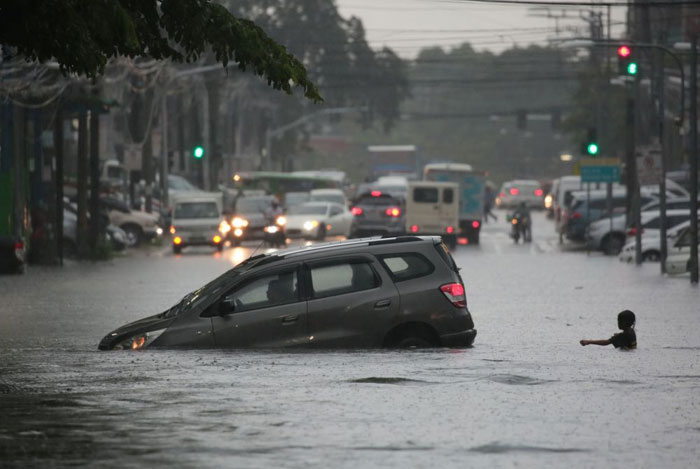
FINANCE Secretary Carlos G. Dominguez III asked the Climate Change Commission (CCC) to be more aggressive in mitigating the impact of climate change, in the wake of consecutive calamities that have set back the economy even further while it is still dealing with the pandemic.
Five typhoons hit the Philippines this quarter, costing the economy P90 billion in lost output, the equivalent of reducing gross domestic product by 0.15 percentage points, according to initial estimates issued by the National Economic and Development Authority.
“Severe weather events inflict human, social, and economic costs on the Filipino people. We lose billions every year in damage to crops and infrastructure. These mounting losses dampen our overall economic progress. These costs will continue to accumulate unless we move fast on mitigation measures,” Mr. Dominguez said in a webinar arranged by the CCC Thursday for Climate Change Consciousness Week.
“I challenge the Climate Change Commission to more aggressively advocate for the protection of our environment. It should advance concrete policy proposals while building public awareness and public support,” he added.
The CCC is the government’s main policy-making body for coordinating, monitoring and aligning government programs with the goal of reducing climate change.
Mr. Dominguez backed “climate justice” within the international community, noting that the Philippines continued to be among those most severely affected by natural disasters intensified by climate change, even though it maintains a small carbon footprint compared to developed countries.
He said advanced economies should lead the global effort to trim carbon emissions.
“Even as we transition to more sustainable economic activities domestically, the Philippines must sustain calls for broader climate justice. President (Rodrigo R.) Duterte has already led the way. We in government must stand firmly behind the President in this fight,” he said.
Mr. Dominguez also stressed the need for better cooperation between national and local agencies to ensure more effective mitigation and disaster risk reduction efforts.
“We can use the COVID-19 (coronavirus disease 2019) crisis as an opportunity to tailor our economic recovery programs to mobilize investment in domestic renewable energy, sustainable urban planning, and climate-smart agriculture,” he said.
“Our rule should be simple: projects that are not green and sustainable should not see the light of day,” he added.
The Philippines’ top source of energy is coal, which accounts for 44.5% of power generated, according to 2015 Energy department data. Natural gas had a 22.9% share, and renewables combining for 25.4%.
According to the World Bank, the Philippines’ carbon dioxide emissions totaled 1.2 metric tons per capita in 2016.
The Energy department last month imposed a moratorium on new coal-fired power plants and allowed full foreign ownership of geothermal projects.
Mr. Dominguez has expressed support for a policy shift favoring clean and more sustainable sources of energy on the road to reducing dependence on coal.
The Philippines is among the most disaster-prone nations in the world, according to the 2020 World Risk Index.
The World Bank estimated the country suffers P177 billion on average in losses to public and private assets due to typhoons and earthquakes each year. — Beatrice M. Laforga

